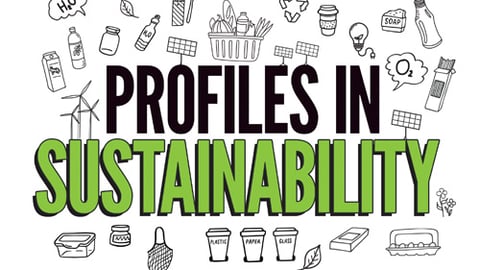The Future of Food Security
In a beautiful spring day in Washington, D.C., I made my way to the U.S. Capitol Visitors Center to attend a bipartisan luncheon held by nonprofit organization Food Tank to mark the launch of the Forum for Farmers and Food Security. According to Food Tank, the forum “is a global coalition dedicated to driving tangible action to transform food and agriculture systems.” This means improving global food and nutrition security while highlighting the connection between food systems and climate resilience.
The packed event featured a panel of food and agriculture systems experts, moderated by Allison Aubrey, of NPR News, as well as a fireside chat with Rep. Sara Jacobs, D-Calif., and a keynote address by Sen. Chris Coons, D.-Del. Attendees spanned executives at several major global food brands, elected officials, agricultural ministers from various countries, leaders at seven UN agencies, major agricultural funders, think tanks and impact investors, among others. The focus was on creating viable economies in Africa by helping food producers transition from expensive imported grains to indigenous crops that are better able to withstand drought and feed a growing population, thus ensuring greater food security for the region. To drive this point home, each attendee received a bag of delicious Yolélé fonio chips, made from one of those native African crops, and a past Progressive Grocer new product.
[Read more: "KIND Snacks Launches Regenerative-Agriculture Initiative"]
The Next Quinoa?
What, you may ask, does food security in Africa have to do with U.S. grocers? Speakers at the luncheon emphasized the importance of helping fund food businesses in this part of the world, rather than just giving aid every time a crisis arises. This would ultimately lead not only to less geopolitical unrest triggered by food insecurity, but also a greater number African-grown and -made products on store shelves around the world, including the United States.
One key issue discussed at the luncheon was how to reduce post-harvest loss, which currently stands at 40% in Africa and contributes to both climate change, through the release of methane, and food insecurity, through the product that goes to waste. Imagine if more of that food were available to feed people in their home countries and to be exported abroad.
After all, for all the buzz in the West with regard to local products, and grocers’ endeavors to partner with area farms and foodmakers to keep transportation costs down and celebrate the unique cuisines of their respective areas, there are certain products — chocolate and coffee spring immediately to mind — made from crops harvested in Africa and other far-off places. Having steady, dependable supplies of these always-in-demand raw materials will keep prices stable along the supply chain.
In addition to those mainstays, grains like fonio, with its nutritious profile and versatility, have the potential to take off in the United States, and not just among African immigrants pining for a taste of home. Like South American quinoa before it, fonio could go from obscure foreign crop to sought-after side dish or breakfast food with the right marketing and a selection of readily available products in the grocery channel.
As the Global South seeks to overcome a changing climate that causes adverse events like droughts, save its people from starvation, quell political instability and grow its economies, robust food systems could be a solution that benefits the globe.






